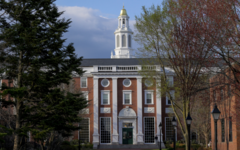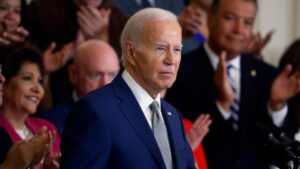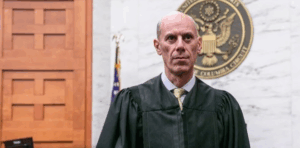This article discusses Harvard's rejection of the White House's letter urging significant policy changes, emphasizing the university's commitment to independence and academic freedom.
Harvard Stands Firm Against Trump Administration's Funding Ultimatum

Harvard Stands Firm Against Trump Administration's Funding Ultimatum
Harvard University boldly defies the Trump administration's demands regarding antisemitism policies while protecting its autonomy.
Harvard University has taken a strong stance against a series of demands issued by the Trump administration, which sought significant changes in the institution's policies under the threat of losing substantial federal funding. In a recent statement on its X account, Harvard declared, "The university will not surrender its independence or relinquish its constitutional rights." The demands were outlined in a letter sent by the White House, which accused Harvard of not adequately addressing antisemitism on campus and required modifications to governance, hiring practices, and admissions protocols.
In its response, President Alan Garber articulated that while Harvard is committed to combating antisemitism, the administration's requests overstepped federal authority and infringed on the university's First Amendment rights. Garber described the expected cuts to funding as detrimental to essential research endeavors, highlighting the university's values as a private institution.
The White House's letter included ten specific demands aimed at adjusting how Harvard operates, suggesting reductions in the influence of students and untenured faculty, and recommending the reporting of students deemed "hostile" to American values. Furthermore, it proposed hiring an external auditor chosen by the government to scrutinize departments that allegedly contribute to antisemitic environments.
Since Donald Trump's presidency began, universities have faced increased pressure to address these issues. Significant funding has been reassessed or frozen, with over a billion dollars affected nationwide. In the past, Columbia University faced a similar fate when $400 million in federal funding was cut in response to accusations of failing to protect Jewish students. Following this, Columbia acquiesced to several demands from the Trump administration, a move that attracted criticism from faculty and students alike.
The continuing dialogue between universities and the federal government raises questions about the balance between academic freedom and policy compliance in an ever-evolving socio-political landscape.
In its response, President Alan Garber articulated that while Harvard is committed to combating antisemitism, the administration's requests overstepped federal authority and infringed on the university's First Amendment rights. Garber described the expected cuts to funding as detrimental to essential research endeavors, highlighting the university's values as a private institution.
The White House's letter included ten specific demands aimed at adjusting how Harvard operates, suggesting reductions in the influence of students and untenured faculty, and recommending the reporting of students deemed "hostile" to American values. Furthermore, it proposed hiring an external auditor chosen by the government to scrutinize departments that allegedly contribute to antisemitic environments.
Since Donald Trump's presidency began, universities have faced increased pressure to address these issues. Significant funding has been reassessed or frozen, with over a billion dollars affected nationwide. In the past, Columbia University faced a similar fate when $400 million in federal funding was cut in response to accusations of failing to protect Jewish students. Following this, Columbia acquiesced to several demands from the Trump administration, a move that attracted criticism from faculty and students alike.
The continuing dialogue between universities and the federal government raises questions about the balance between academic freedom and policy compliance in an ever-evolving socio-political landscape.





















